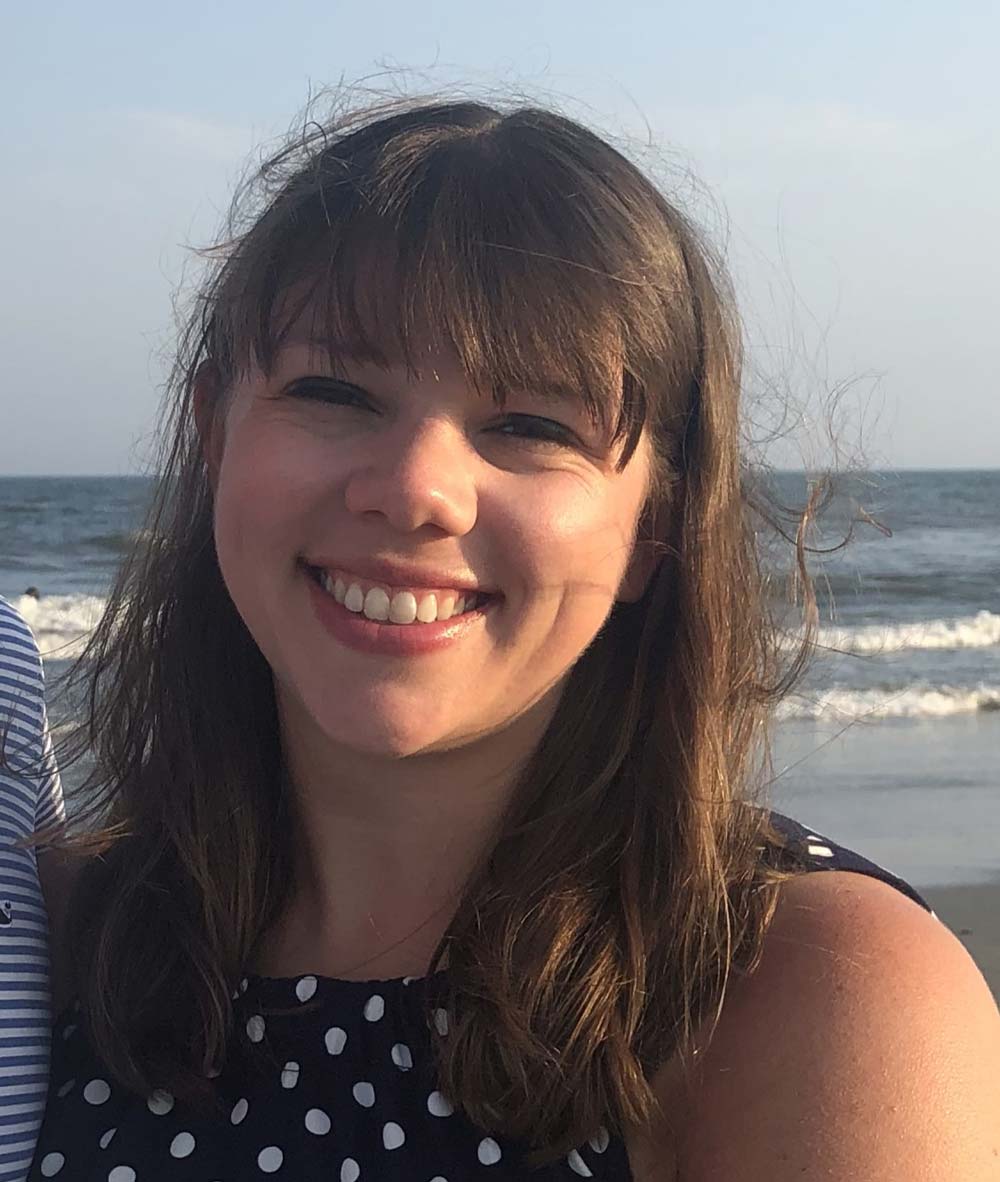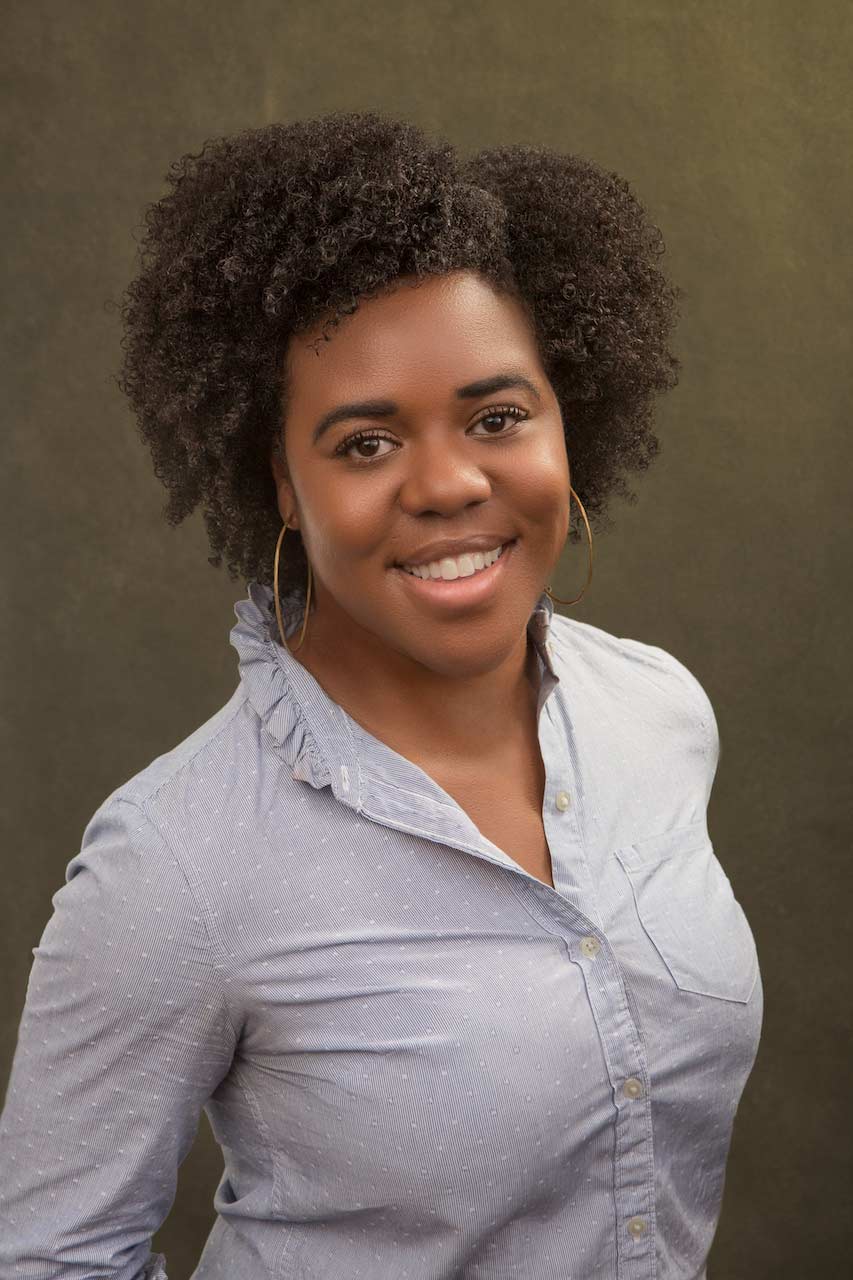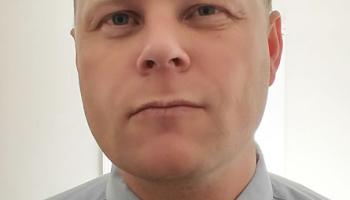‘Remarkable’ UVA Students Expand Possibilities Through Washington Post Partnership

(Photo illustration by Emily Faith Morgan, University Communications)
Bethany Bell was never more eager to wake up at 7 a.m. than she was on the morning of Jan. 25.
“I opened my phone to the Washington Post and just started scrolling down,” Bell said. “And then, ‘Oh my gosh, there it was!’ I immediately started screen-shotting and sending it to every person I’ve ever known.”
Bell is a graduate history student in the University of Virginia’s “Bridge to the Doctorate” program within the College of Arts & Sciences. The Arkansas native is working on a thesis about African American memory of slavery and the Civil War. Before coming to UVA, she served in the Peace Corps. She also holds a bachelor’s degree from the University of Central Arkansas and a master’s from Boston University
And, as of two months ago, Bell is a published author in one of the most-read news outlets in the country.
For the second year running, UVA, through its “Governing America in a Global Era” program, partnered with the Washington Post for an intensive course taught over a two-week stretch in January. The course covered how to write, edit and pitch historically themed opinion pieces, with the chance of them appearing under the Made By History section of the Post’s website. One of the program’s goals is to prepare students for careers in public service through a wide array of teaching and experiences.
Bethany Bell is a graduate history student working on a thesis about African American memory of slavery and the Civil War. (Contributed photo)
This year’s course, taught by Made By History editors Carly Goodman and Katie Brownell, produced op-eds published to the Post’s site from four of the nine UVA students enrolled.
Goodman, a historian and author who recently was an assistant professor at La Salle University in Philadelphia, called the UVA students “remarkable” to work with.
“They brought incredible energy,” she said. “I hope that they found it as invigorating as we did on the teaching side. It’s really cool to see institutions putting money where their mouth is and making investments in these kinds of experiences to really help their graduate students navigate what is a difficult job market.”
The digital-only Made By History section was established in 2017 as a dedicated space for bringing historical analysis of current events to a broad audience. Experienced scholars are typically the guest authors but, Goodman said, “we are also very interested in publishing work by emerging scholars because they sometimes have the most interesting insights.”
Bell took the news hook of Florida Gov. Ron DeSantis’ move to ban Advanced Placement courses on African American studies from the state’s high schools and placed it in historical context by highlighting a pattern that began with the United Daughters of the Confederacy in the late 19th century. The UDC, a neo-Confederate organization that endorsed the Ku Klux Klan, “made it its mission to instill a white supremacist version of history in generations of American children,” Bell wrote in her Washington Post article, “Florida’s rejection of an AP course is the latest salvo in a very old war.”

Brianna Frakes is a doctoral candidate in American history who is writing a dissertation on military occupation and racial violence in Virginia during the Civil War and Reconstruction. (Contributed photo)
“My goal of the piece was for people to look at this and see how these ideas connect,” Bell said, “and not just until the 1920s or ’30s, but all the way through to the present day.”
Finding ways to deliver research that appeals to an audience beyond the academia world is a key skill for today’s young historians, said Will Hitchcock, a UVA history professor and director of the Governing America in a Global Era program.
“The profession is changing,” Hitchcock said. “So people who come to get a Ph.D. in history aren’t necessarily going to become history professors. The market has changed, the college and universities are changing, so giving history students a little bit of training in how to engage the public is part of a broader process of introducing them to alternative paths.
“It’s not always going to be that you just end up as a history professor. You need to be able to write and talk to people in the public who are not inside the academy.”
Brianna Frakes is a doctoral candidate in American history at UVA who, on Jan. 31, had her op-ed – “The Emancipation Proclamation sparked fierce resistance. That matters today.” – published in the Post. Before coming to UVA, she worked as a tour guide and program lead at the American Civil War Museum in Richmond. That’s where she first learned to relate to a general audience. Her experience with the Post has enhanced her capabilities.
“I’ve spoken to people in public settings, I’ve given public talks and everything, but I had never really written anything for a large, public audience before,” she said. “So, in that sense, it was new for me. But it was really important for me to learn how to do it because I want to be able to communicate and convey history in a variety of mediums.
“I want to combine my academic training with my public history experience to get students or the general public really excited about history, to the point where they want to learn more.”









